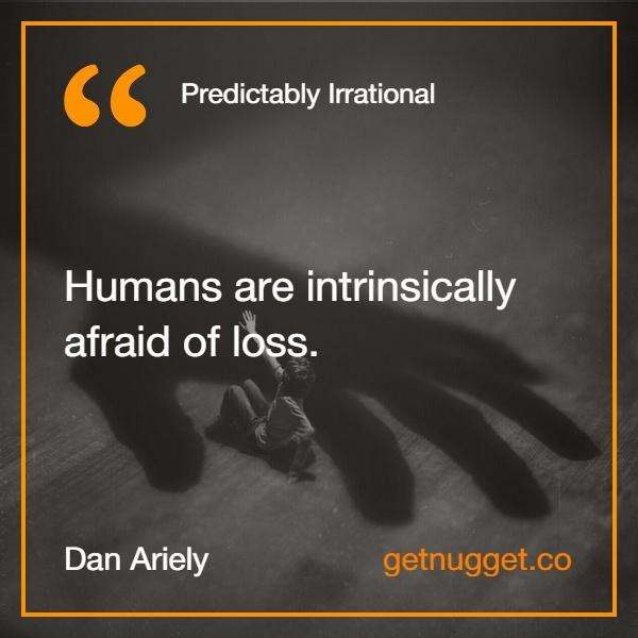“The brains of humans and other animals contain a mechanism that is designed to give priority to bad news.” - from Thinking, Fast and Slow by Daniel Kahneman

Image Source
In my last post, TIL: Richard Thaler Is “The Father” Of Behavioral Economics, I wrote about how Richard Thaler used the endowment effect and the idea of loss aversion to explain why humans sometimes behave irrationally.
As for my own loss aversion, I am reluctant to promote post because I am more focused on the loss of my limited Steem Dollars, especially since I elect 100% Steem Power payouts, rather than viewing it as a place to potentially gain much more than I spend.
Mostly I think I wanted to mention that because of a recent @papa-pepper article I read that reminded me of the promoted post tab.
Yes I forgot about it.
Even since the addition of the “home” page rather than just a common trending page, I mostly only look at my feed and don’t explore the other tabs.
“As @smooth said, “Most people won't spend money to promote junk posts,””
The problem I have with this statement is everyone is bias.
“I think my post is good because I wrote it.” is likely the thought of most steemians, with the obvious exceptions of people who are intentionally spamming or acting deceitfully.
People who promote, and most people who post, probably are anticipating a reward, and as for promoters a reward larger than the cost to get attention.
But to be fair on the other hand, sometimes I never spend a steem cent on a post and end up way ahead.
Hence why some people consider this place a lottery.
Anyways, that’s not why you're here….
“The brain responds quickly even to purely symbolic threats. Emotionally loaded words quickly attract attention, and bad words (war, crime) attract attention faster than do happy words (peace, love). There is no real threat, but the mere reminder of a bad event is treated ... as threatening.” - from Thinking, Fast and Slow by Daniel Kahneman
Ergo, “If it bleeds, it leads.”
This also extends to the reason politics is such a popular topic in the news:
“The sensitivity to threats extends to the processing of statements of opinions with which we strongly disagree. For example, depending on your attitude to euthanasia, it would take your brain less than one-quarter of a second to register the “threat” in a sentence that starts with “I think euthanasia is an acceptable/unacceptable...”” - from Thinking, Fast and Slow by Daniel Kahneman
We react to bad news.
Now our reactions are manifest as clicks.

What can we do now that we are more aware of our loss aversion?
“Loss aversion refers to the relative strength of two motives: we are driven more strongly to avoid losses than to achieve gains. A reference point is sometimes the status quo, but it can also be a goal in the future: not achieving a goal is a loss, exceeding the goal is a gain. As we might expect from negativity dominance, the two motives are not equally powerful. The aversion to the failure of not reaching the goal is much stronger than the desire to exceed it.” - from Thinking, Fast and Slow by Daniel Kahneman
It appears to me that a reasonable readjustment of your own reference point, mentally or otherwise, would set you up for a better assessment of the outcomes.
Or maybe just learning to better deal with loss.
I don’t know. What do you think?

Follow me @strangerarray and donate because nobody makes me bleed my own blood.
Please check out my recent post:
P.S. Before you go, do you have Student Loans and are looking for ways to save money?
I recommend Credible.
Use my link to get $200 !


